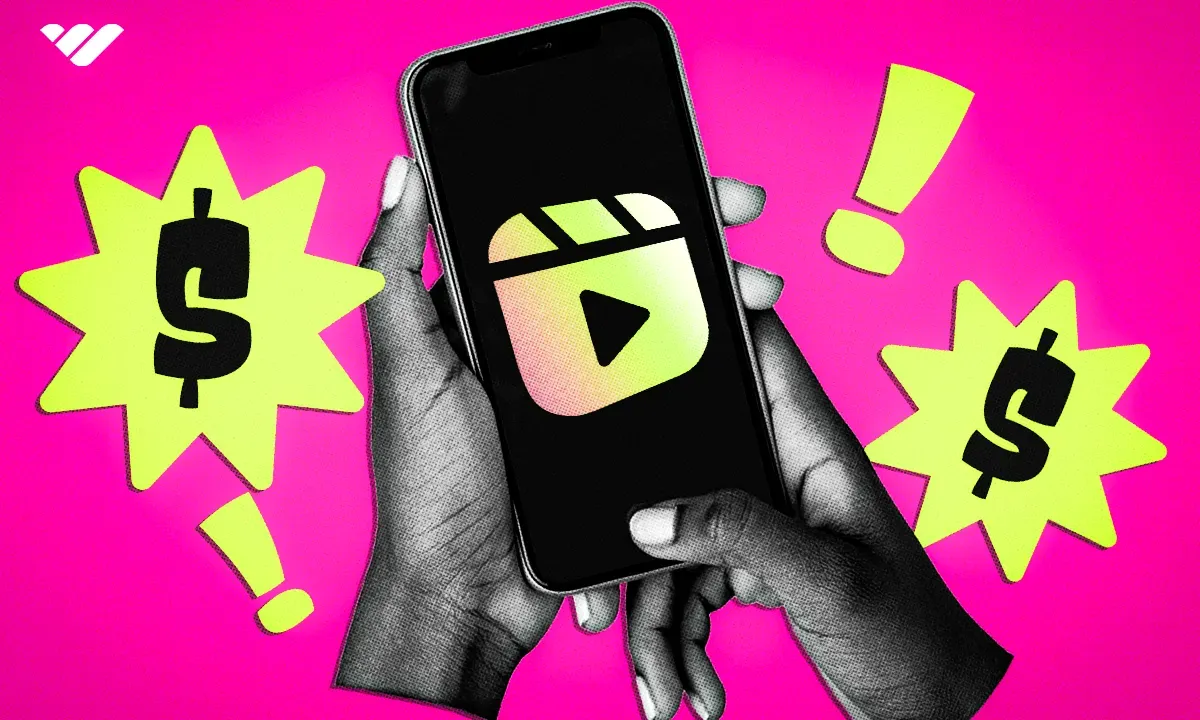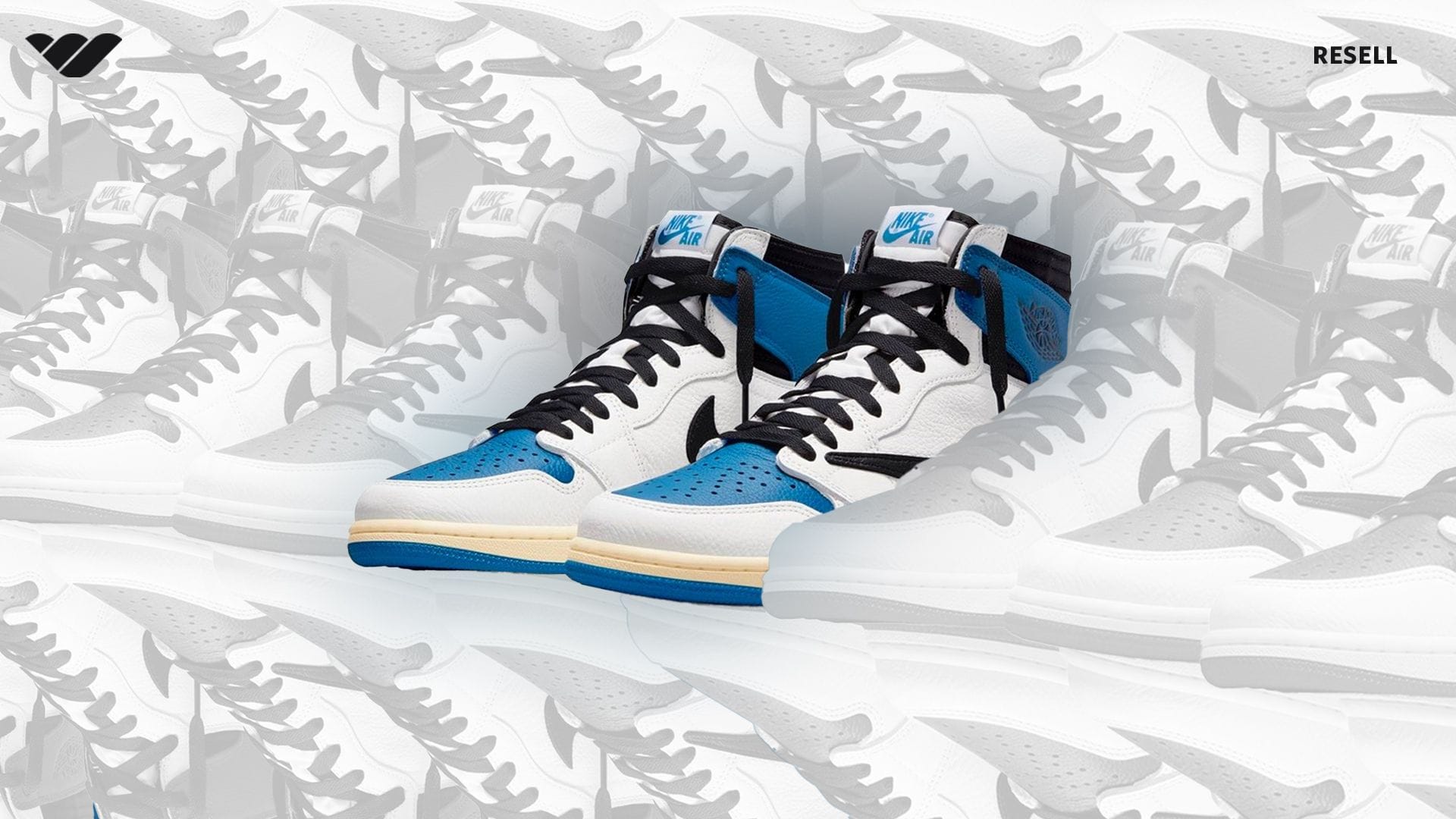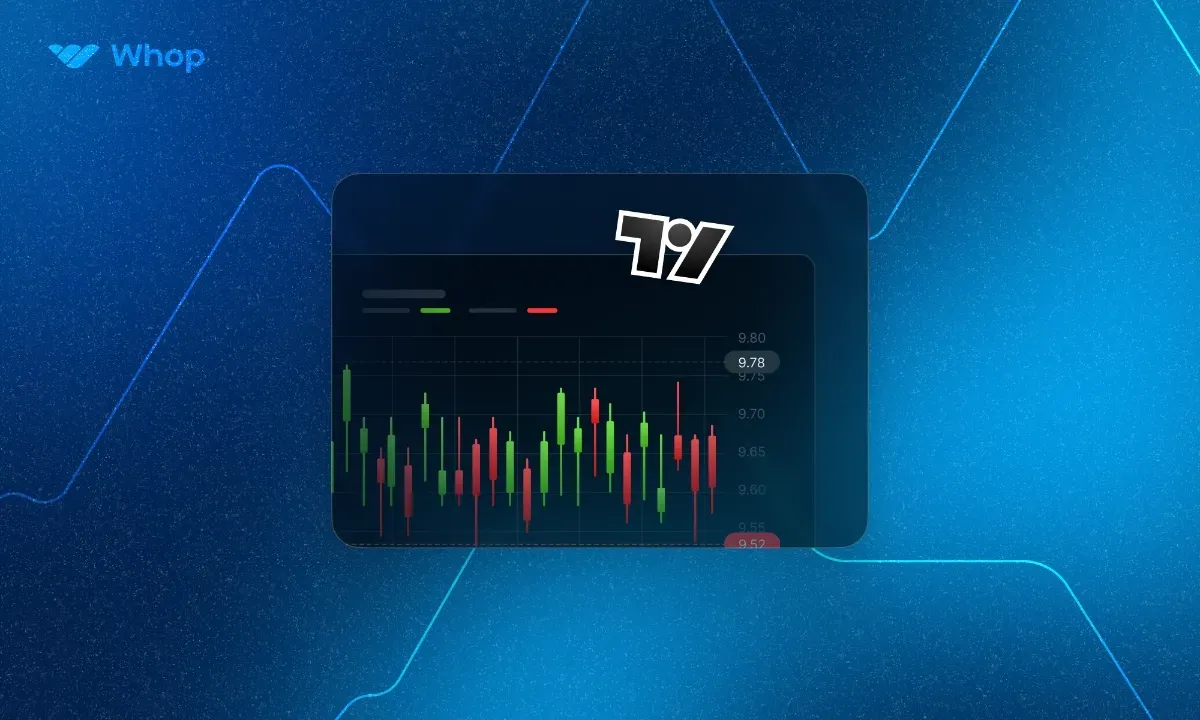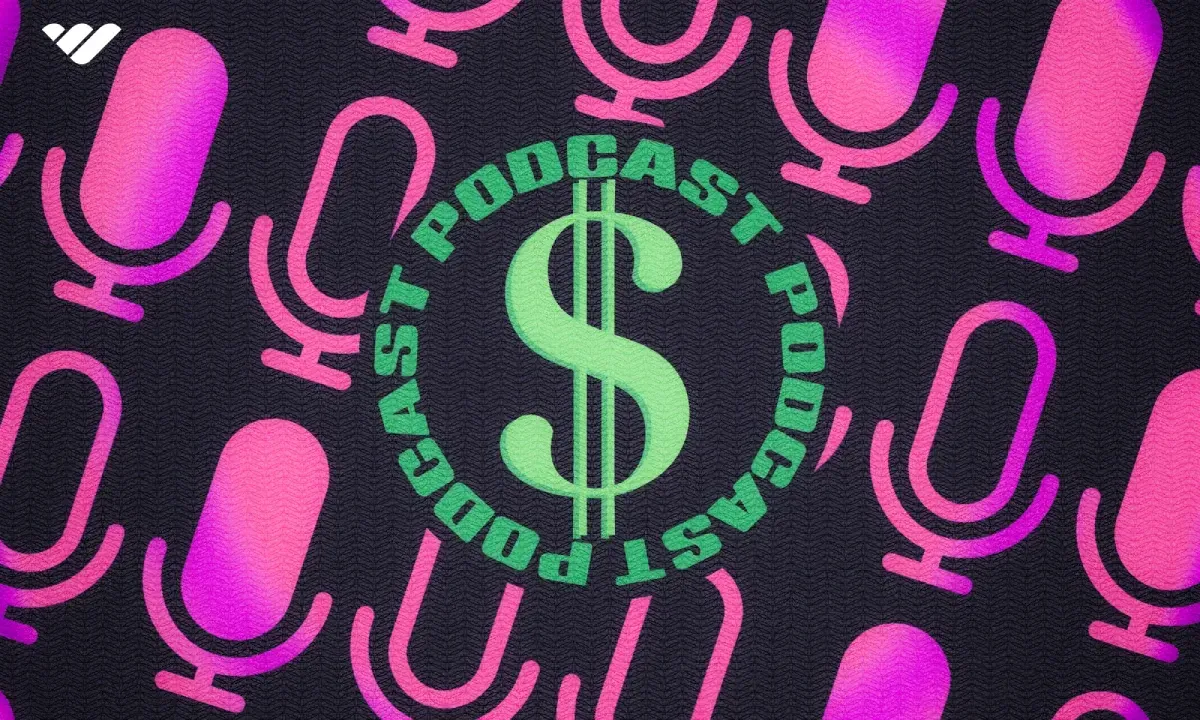From embracing the grind to having a side hustle, the idea of pursuing financial stability and success without being chained to your desk in a 9-5 job is something that has penetrated popular culture. Turning a hobby into a steady income stream is one way of improving your bank balance while simultaneously improving your work/life balance.
The old saying "if you do what you love, you'll never work a day in your life" might be a little too optimistic, but there is a grain of truth to it. Earning from your hobbies can be fulfilling and fun. The trick is finding a hobby you can use to generate an income. Here, we'll explore some potential business opportunities that cover a wide range of interests and skills. Hopefully, you'll find some of these ideas inspirational.
25 Hobbies That You Can Make a Profit With
Any hobby you enjoy and you're good at can be monetized, but some hobbies have a lower barrier to entry or higher earning potential, making them more suited to being turned into a side hustle or even a profitable new business. Let's take a look at 25 of them.
1. Social Media

Are you switched on to the latest trends and memes? Do you enjoy posting on social media? Can you craft eye-catching content that people want to engage with? If those attributes apply to you, then you could be a great affiliate marketer or social media influencer. The influencer industry is incredibly competitive, but if you focus on a specific niche, it's often possible to get sponsors with a four or five-digit following, rather than requiring an audience in the millions.
Pros: All you need is a smartphone, an internet connection, and a subject you're passionate about.
Cons: This is a highly competitive niche, and most people who try to earn money on social media fail to gain traction.
2. Music
You don't have to be in a band and performing live gigs to earn a living from making music. Streaming services operate on a revenue-sharing model, and there's demand for everything from mainstream rock and pop songs to instrumentals and easy listening. Another revenue stream for musicians is selling the rights to songs and sound packs for use in games and videos.
Some other ways to make money from music include:
- Teaching people in-person or online
- Recording lessons for students to follow asynchronously
- Producing music worksheets
- Selling guitar tabs or sheet music
Pros: If you already have the equipment, there's a low barrier to entry.
Cons: Income can be unpredictable, and rates on streaming sites are poor.
3. Writing

Visual forms of entertainment such as TikTok and Instagram might get most of the attention these days, but there's still demand for long-form content. Exercise your creative side by writing some fiction, or turn your niche expertise into an income by publishing books, blog posts, or a paid newsletter. You can monetize blog posts with PPC advertising and affiliate programs, or by charging a subscription for access to your content. The earning potential varies significantly between niches, and you'll have to be a prolific writer to have a chance of making it your main income stream, but as side-gigs go, writing can be a lot of fun, and it's something you can do from anywhere.
Pros: Self-publishing has a very low barrier to entry.
Cons: You'll need a good marketing strategy to get your content noticed.
4. Baking
In the past couple of years, the market for gourmet cookies, traybake cakes and ornately decorated birthday cakes has grown massively. If you enjoy baking, have some creative recipe ideas, and can make aesthetically pleasing sweet treats, why not try to make some money from your hobby? It can be tricky to earn a full-time income from this hobby, as demand for cakes is seasonal. In the United States, most people have birthdays in the summer, so you may see spikes in demand then and around public holidays, but a lull in orders during the spring.
One option would be to supplement your baking income with money from the sale of cookbooks, or by running a cookery blog that you monetize with ads and affiliate links.
Pros: Work as little or as often as you like, depending on when you take commissions.
Cons: You may be required to comply with hygiene and food labeling regulations if you sell baked goods.
5. Pet Sitting
Pet sitters are people who go to their client's homes to take care of their pets while they're on holiday or working away. Some pet sitters stay in their clients' homes and take care of their pets around the clock. Others simply visit regularly to make sure the pet has food and water, and regular walks if necessary. You can get started as a pet sitter using apps such as Rover, or focus on word of mouth and private referrals.
Pros: Low startup costs, and a chance to work with cute, furry animals.
Cons: Unpredictable and sometimes unsociable hours.
6. Illustrating

The art market is worth around $67 billion, and ecommerce artwork accounts for more than $11 billion of that. If you have some artistic talent, you can turn that into an income stream by selling your prints online. Alternatively, if you enjoy doing commissions, you can target higher-value customers and provide illustrations for other creators. For example, children's book authors are often looking for reliable artists to collaborate with. Find one that matches your style and you could have a steady stream of work available to you.
Pros: Get paid to do something you love - creating.
Cons: You'll have to spend time marketing your work, and potentially dealing with revision requests.
7. Makeup Skills
The market for makeup tutorials is expected to reach a value of $63.7 billion by 2025. The majority of this growth is expected to come from Asia, but Americans and Europeans love their beauty tutorials too. If you're good at applying makeup and can explain the techniques well, you could carve out a successful niche by sharing that knowledge with others via three-minute TikTok videos, or longer YouTube tutorials. You'll have to supply your own makeup to begin with, but if your audience gets big enough you could get brand sponsorships on top of your ad revenue payments.
Pros: Get paid for something you love doing - experimenting with new looks.
Cons: You need to buy makeup for the tutorials, which can be expensive.
8. Photography

Whether you're an avid photographer with some serious kit at your disposal or merely an enthusiast with a decent camera phone, you can still earn some money from your work. Stock photography platforms such as Shutterstock and Pexels allow anyone to upload photographs and sell usage rights to bloggers, news outlets, and other creators.
While some people make good money from stock photography marketplaces, it can be challenging to find subjects that aren't already saturated with submissions. If you're confident in your work, selling fine art photography prints could be a more lucrative and enjoyable option.
Pros: It's possible to get started with nothing more than a camera phone.
Cons: Staging and shooting stock photographs can be time-consuming.
9. Gardening
Green-thumbed individuals might enjoy selling seeds, flowers, or even vegetables from their own gardens as a way to earn a little extra money throughout the year. If you're looking for something more long-term, tending other people's gardens could give you a steady income, although that requires more time and increases the wear and tear on your equipment.
Before you start any gardening-related ventures, be sure to check the regulations in your state or country. You may need insurance before you start offering gardening services, and some regions have strict labeling and registration requirements for selling seeds.
Pros: Can be as serious or as casual as you like, and a rewarding way to spend your time.
Cons: Complex insurance and regulatory requirements in some parts of the world.
10. Fashion Advice

Turn a passion for fashion into an income stream by becoming a stylist or image consultant. Stylists help people build a wardrobe that suits their self-image and matches the events they plan to attend. People from all walks of life work with image consultants, revamping their wardrobes when they start a new job, or helping them shop for clothing for a special event. You can provide advice remotely, or in person, going with your clients and providing personal shopping services.
Earning potential varies depending on the type of client you work with. If you have a good sense of style yourself, and strong marketing skills, you can pursue higher-end, and even international clients for a greater income.
Pros: Fun, flexible work for people who enjoy studying the latest fashion trends.
Cons: Most clients are short-term, meaning your income may be unstable.
11. Sports Picks

If you're a sports fan and you enjoy gambling, why not share your tips and knowledge with the world? Open a sports betting blog and earn money from affiliate links, or share your sports betting tips via a paid mailing list or community. To earn a stable income from this, you may need to post about multiple sports, to take into account each sport's seasonal schedule.
Running a sports picks service is a big commitment because you'll need to provide your followers with picks on a set schedule. If it's something you're truly passionate about, and that you'd be doing for yourself anyway, it could be a fun and lucrative opportunity.
Pros: The perfect excuse to obsess over the stats and schedules of your favorite sports.
Cons: During the sports season you'll have to send out tips consistently, so it's a big commitment.
12. Pottery
There's something incredibly satisfying about working with your hands. Why not put some of your work up for sale on Etsy, or take it to local craft markets? The platform charges a $0.20 listing fee and a transaction fee of 6.5% on each sale, so you'll need to make sure your prices are set appropriately to cover the cost of materials and the time that went into making the item.
Etsy is a popular site and people love to explore the marketplace shopping for gifts. However, the platform has become saturated with low-cost, mass-produced goods so it's important to take the time to design an eye-catching listing that explains the quality of your product. If you find your listings don't get noticed, consider advertising locally and offering higher-value commissions. Counter intuitively, it's often easier (and less stressful) to sell one $200 item than ten $20 ones.
Pros: Get all the satisfaction of making things, and your money back so you can do it again.
Cons: You'll spend more time than you expect managing listings and doing customer service.
13. Video Gaming
If you're a gamer, the idea of quite literally getting paid to play video games while talking to other gamers sounds like a dream come true. The reality is that fewer than one in seven streamers earns more than $25 a month. The streaming market is hugely competitive, and the platform's success stories are the streamers who treat it like a full-time job.
Some other ways to make money from games include:
- Recording video tutorials and monetizing your channel
- Selling mods for PC games
- Offering powerleveling services in MMOs
Pros: Get started for free and build a following while having fun playing games.
Cons: Fewer than 1/3rd of Twitch streamers make any money at all on the platform.
14. Traveling

Whether you're into budget backpacking or luxury getaways, there are millions of other people just like you who would love to benefit from your expertise. If you travel a lot, start a blog and monetize it so you can recoup some of the cost of your trips. Share your thoughts and experiences, offer packing lists and tips for how to get around like a local and avoid the tourist traps.
Alternatively, take a more business-like approach and become an online travel agent. To compete in this industry you'll need to join IATA, enabling you to work with airlines and hotels more easily. You can keep costs low in the early stages by working with a host agency.
Pros: Turn something you love doing into an income stream, and have fun planning other people's holidays.
Cons: Income can be inconsistent and if you want to be a travel agent you need to be good at sales.
15. Coffee
If you've ever dreamed of running your own coffee brand, now's your chance! Companies like White Coffee and Joe's Coffee Roasters offer private-label coffee solutions. Choose from beans, pods, or ground coffee from a variety of different blends, and sell it in your coffee shop, or online.
Coffee is a premium product with a large audience of devotees who are willing to pay extra for a good beverage. White-label coffee solutions enable you to start small by selling to your friends and scale your business once you've found the perfect blend.
Pros: Low start-up costs, and you can sample the products in the name of market research.
Cons: It might take some time to find a high-quality supplier.
16. Reading

The launch day for your favorite author's new book doesn't have to hit your wallet hard. If you love to read, why not start a book review blog? You might get sent books to review, and you can earn from referral links. You could also start a real-world (or virtual) book club to connect with your fellow readers. Then you'll always have an excuse to have to take time out to read the latest installment of your favorite series.
Book clubs can earn money through membership fees, affiliate links, merchandising, and hosting events where members get to chat with popular authors.
Pros: A flexible way to earn from something you love doing.
Cons: Running a community can be time-consuming.
17. Website Flipping

There are two approaches to website flipping. One involves building the websites yourself, while the other entails purchasing existing websites and improving their SEO before selling them on. Both approaches are similar to flipping houses or cars. You use your skills and time to make something that has value for buyers who want a profitable website, but either can't or don't want to do that groundwork.
To see what sort of profit potential is available, take a look at Flippa, an auction site full of online properties ranging from starter websites to fully-fledged businesses.
Pros: Only a small financial investment is required.
Cons: Some people find it hard to let go of their "creations" once they're done!
18. Sneaker Reselling

The cutthroat world of sneaker resale can be exciting for those who are passionate about their shoes. Sneaker enthusiasts will pay big money for limited editions of the most desirable brands. Buying sneakers to resell them can be hugely profitable, but it's a market with ups and downs. Sometimes, a drop that should be hugely popular flops. Occasionally, a brand will do an unexpected restock of a limited edition product, decimating your margins, or leaving you with a product you can't sell.
If you truly love sneakers, and you've got the budget and heart to deal with those challenges, you can do well from reselling, and it's a great way to subsidize an existing sneaker-buying hobby.
Pros: Profit from being plugged-in to an industry you're passionate about.
Cons: As with other collectibles-focused businesses, there's a lot of financial risk involved.
19. Knitting
Knitting is a sought-after skill, and knitted clothing is a popular gift due to the time and care that goes into making even a relatively small item. If you enjoy making commissions, you can sell knitted garments for a significant markup to buyers who appreciate their value. Experienced crafters will vouch that it's better to sell to strangers who are willing to pay your price than to work with friends and family who might say "But the wool only costs $20, why are you charging so much?"
If the thought of taking on commissions is too intimidating, selling patterns could be a good option for you. The margins are smaller, but you get to make a pattern once and sell it to multiple buyers.
Pros: Make a profit, and get the warm feeling that comes with seeing people appreciate their handmade gifts.
Cons: Each commission can be time-consuming, and working to a deadline is stressful.
20. Driving

Not everyone is comfortable behind the wheel. If you are, put that skill to good use and teach others how to drive, or work as a taxi driver in your spare time. Flexible hours delivering an in-demand service make driving-related freelance jobs accessible and quite profitable. Your earning potential is limited by the amount of free time you have. However, you can charge a good hourly rate for your services.
Pros: Set your own hours. Ideal as a second job.
Cons: Many people forget to take into account insurance and wear and tear-related costs.
21. Shopping

Personal shoppers help people pick out outfits for big occasions, or shop for gifts. Some malls hire people to work as personal shoppers and allow customers to book shopping experience days. Other personal shoppers are self-employed and work with high-end or international clients. If you've got a good sense of style, a knowledge of the latest trends, and an outgoing personality, you could find this business a lot of fun.
Pros: Low startup costs, and a fun experience.
Cons: Unpredictable income, especially when you're just getting started.
22. Interior Design
Some people hate decorating, others simply can't walk into a room without imagining ways to revamp it. If you fall into the second category, offer your services as an interior designer. You can work with individuals, or, for a more professional and hassle-free experience, landlords or commercial property owners. Build a relationship with reliable local tradespeople to turn your passion into a profitable, end-to-end service for people looking to revamp a property.
Pros: Exercise your creative muscles and get paid for it.
Cons: Most jobs are one-offs, so you need to market yourself consistently to get a stable income.
23. Trading

Sell your stock tips, forex and crypto trading signals to people who don't enjoy doing technical and fundamental analysis for themselves. Offering a subscription to your trading signals service can net you a steady supplemental income, on top of any profits you make from your own trades. If you set up this sort of service correctly and hire a virtual assistant to handle customer service queries for you, you can enjoy a relatively stress-free income.
Pros: This kind of business scales quite effectively for a high profit potential.
Cons: Requires you to provide signals whenever the markets are open, and needs some technical knowledge to set up.
24. Podcasting

Running a podcast, even a small one if you pick the right subject niche, can open the door for sponsorship opportunities, free products, and an income from backers and subscribers. If you're considering launching a podcast based on a hobby you have, pick a sensible and consistent cadence for new episodes so that you don't burn out. Fortnightly could be a good starting point.
Pros: Earn money talking about your favorite subject.
Cons: You're committing to producing regular episodes.
25. Fitness

Online personal training and workout videos offer substantial earning potential, especially compared to the client base that attends your local gym. Use apps like PT Distinction, Mindbody, and Everfit let personal trainers share their workouts with remote clients, who can upload results and feedback asynchronously. This helps you manage a large database of clients, effortlessly.
Pros: Take on an unlimited number of high-value, individual clients.
Cons: The online trainer space is hugely competitive, so earning clients can be a challenge.
What are the Best Hobbies for Making Money?
If you're looking for a hobby that you can make money from, the best options are ones that have low start-up costs and high earning potential, or hobbies that you've already invested time and/or money into learning.
For example, if you're already an avid photographer, selling some of your work on stock photography sites could earn you a steady income. However, if you don't even have a good camera phone, let alone a standalone digital camera, it would most likely take you a long time to break even if you started a new photography side business.
Online businesses that have low startup costs are a much lower-risk option for would-be entrepreneurs. If you're brainstorming for business ideas, try to come up with something that you can start on a small scale with a low outlay, and grow for maximum chances of success.
How Can I Make Money From My Hobby?
Follow this blueprint to turn a much-loved hobby into a money-generating enterprise:
- Do Market Research: Who is your target audience, where are they located, and what is it about your product or service that would appeal to them? How much money do they have? What sort of marketing would appeal to them?
- Define your Goals: Do you want to earn enough to quit your day job, or are you simply looking to supplement your existing income or subsidize your hobby? Your pricing, and the amount of time you devote to the business, will depend on your goals.
- Write a Business Plan: Think about your expenses, the value of your time, and how much you want to invest into research and development, marketing, etc. Your business plan will help you manage the financial and practical aspects of your business. Review the plan regularly to ensure it's still current and relevant.
- Decide on Your Branding: Make sure your branding matches your target audience, and reflects what your business has to offer.
- Test and Refine Your Product: Beta test your product or service on friends, family members and your existing followers, and refine your offering based on their feedback.
- Choose a Sales Platform: Explore a few different platforms and compare their technical features and prices to find one that suits you best.
- Go Live: Launch your product, and watch the sales roll in.
If you're selling digital products or services, be sure to take a look a Whop.com, a bustling social commerce platform.
Whop empowers digital entrepreneurs to sell everything from ebooks and videos to coaching calls, online courses, apps and trading signals. You can launch an online business or subscription-based community for free on the platform, and have all your order fulfilment and payment processing needs taken care of. All you have to pay is a 3% commission on your sales.
Get earning with your hobbies today by launching a business on Whop.com for free
Frequently Asked Questions
Do You Have to Pay Tax if You Make Money From a Hobby?
Tax rules vary depending on where you live. For example, in the United Kingdom, income from a hobby of less than £1,000 per year is not taxed. In the United States, the rules are far more strict, with the IRS requiring people to declare any hobby income of more than $400. It's important to talk to a tax professional to ensure you're reporting any income from a hobby correctly and that you're not paying too little, or too much, tax.
Is it a Good Idea to Turn a Hobby Into a Business?
Turning a hobby into a business can seem like an appealing way to earn some extra money, or free yourself from a more boring job. However, you should consider the long-term implications of turning something you enjoy into the way you support yourself. Make sure you have some hobbies that are "just for fun" so you can maintain a good work/life balance.
How Can You Get Started Earning Money From a Hobby?
The easiest way to monetize a hobby is by selling digital goods relating to it. For example, podcasting, writing ebooks or creating video tutorials about something you enjoy doing, and selling that content on line. Whop offers an easy way to get started with selling digital goods, handling everything from accepting payments to delivering the downloads to your customers.



![40 Easy ways to make money online [2024]](/blog/content/images/size/w600/2023/11/20-ways-to-make-money-online--1-.webp)

